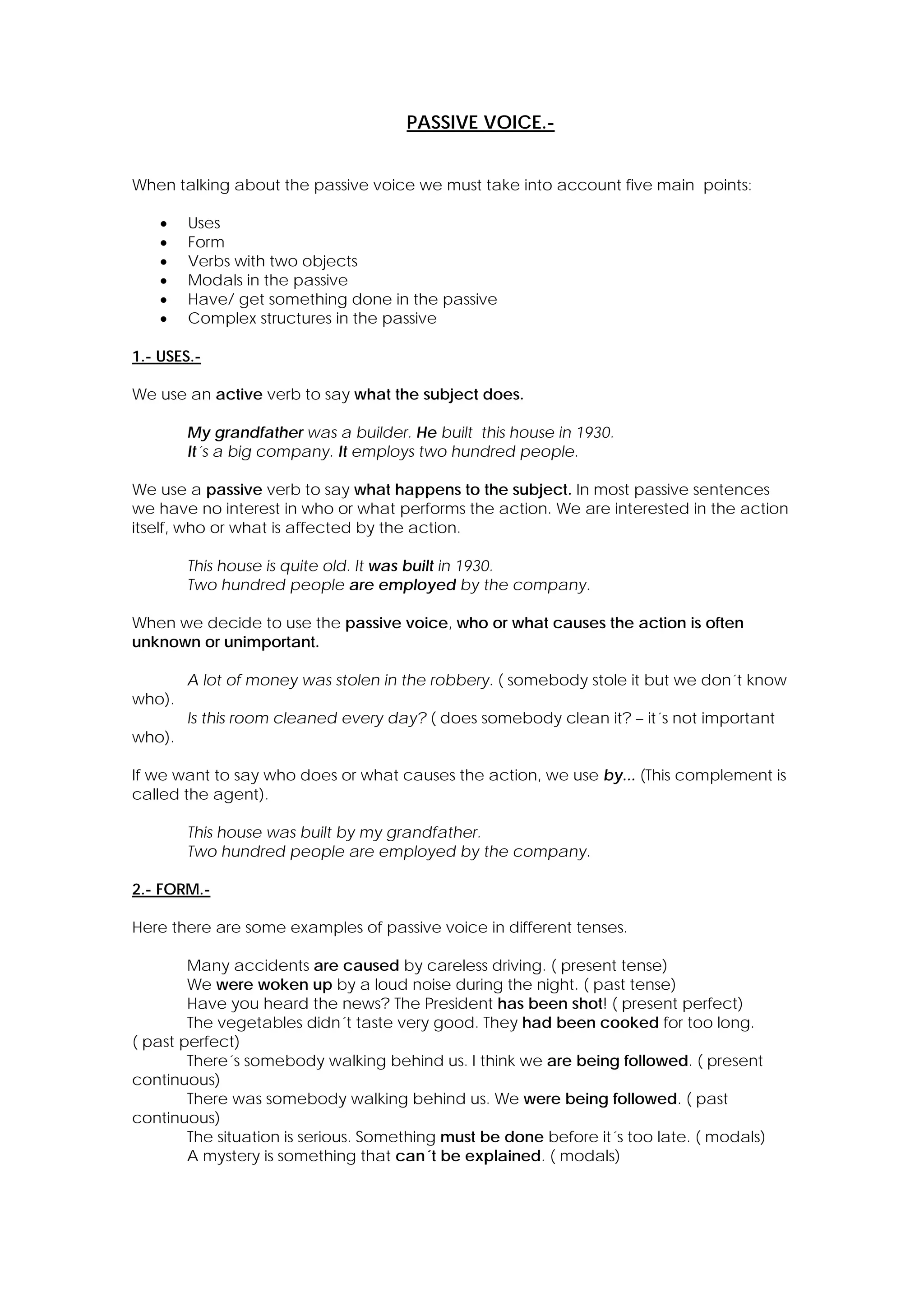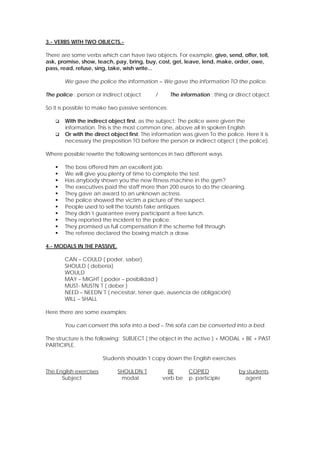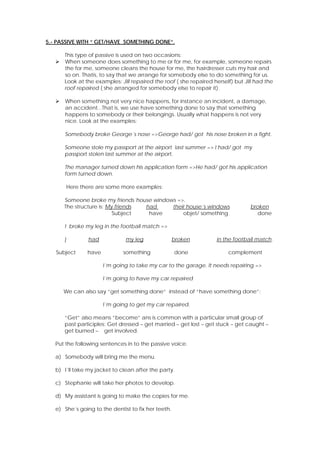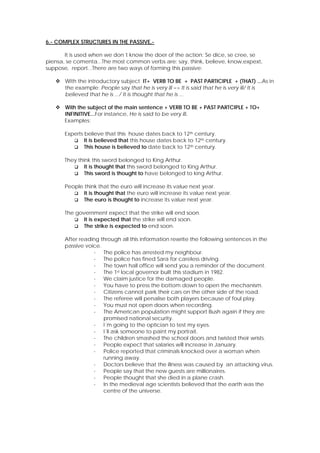The document discusses the passive voice and provides examples of its uses and forms. It covers:
1) When the passive voice is used and its basic form.
2) Examples of the passive voice in different tenses.
3) Verbs that can have two objects and how to form the passive for them.
4) How to form the passive with modal verbs.
5) How to use "get/have something done" in the passive voice.
6) Complex structures using "it is said/believed/thought" in the passive.




